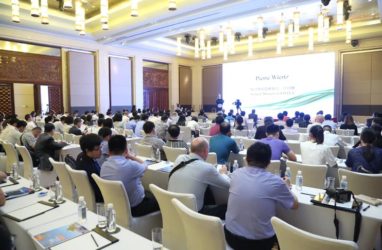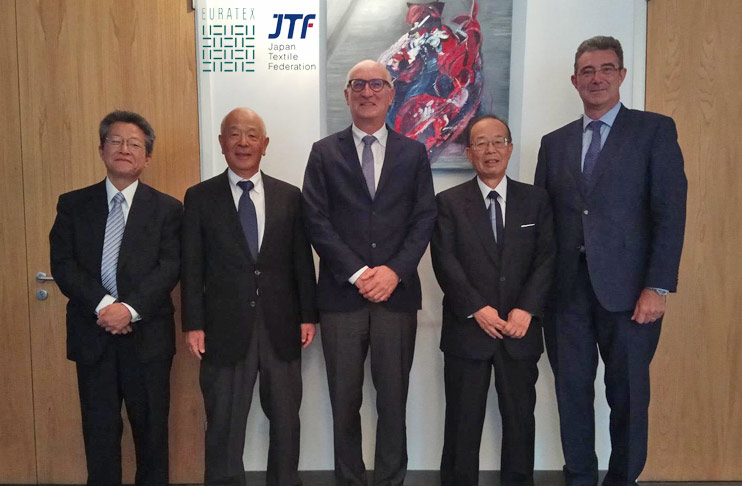Joint Statement on the EU and Japan political agreement on the Economic Partnership Agreement (EPA)
Following the announcement made earlier this month by the European Union and Japan about the political agreement on the main elements of an Economic Partnership Agreement between those two partners, the Japan Textile Federation (JTF) and the European Apparel and Textile Confederation (EURATEX) welcomed wholeheartedly those results and urged their respective authorities to implement as soon as possible the agreement for the benefit of their companies.
On 10th July 2017, the EU and Japan Textile and Clothing industries met in Brussels to exchange views about their respective industries’ status, their relationships and the political conclusions of the Economic Partnership Agreement (EPA) between Japan and Europe. During that meeting, both JTF and EURATEX reiterated their support to the agreement reached that should increase the opportunities for their companies to grab market openings with their innovations.
EU and Japan Textile and Clothing industries met in Brussels

“Since the start of the discussions the EU and Japanese textile and clothing industries worked together on tariffs and rules to ensure that the negotiators deliver the right framework for our products. Though, we still need to see the details of the text of the agreement, we are confident that such ambitious and industry driven deal will allow our companies to reap rapidly the benefits of this agreement”, said Klaus Huneke, President of EURATEX.
Indeed, both industries did issue two joint statements in support of those negotiations (November 2013 and November 2016) providing suggestions of possible area of agreement for their products both for tariffs and rules of origin. Both industries are greeting their authorities for having taken duly into account their proposals made during the negotiations to reach an agreement that should foster the textile and clothing bilateral relations.
Mr. Masanao Kambara, JTF President concluded that “The immediate abolishment of customs duties with full reciprocity and no exceptions as well as the rules of origin prone to promote industrial relations should be concluded and put into effect as soon as possible in order to allow this future-oriented agreement to deliver the expected benefits to our companies”.

